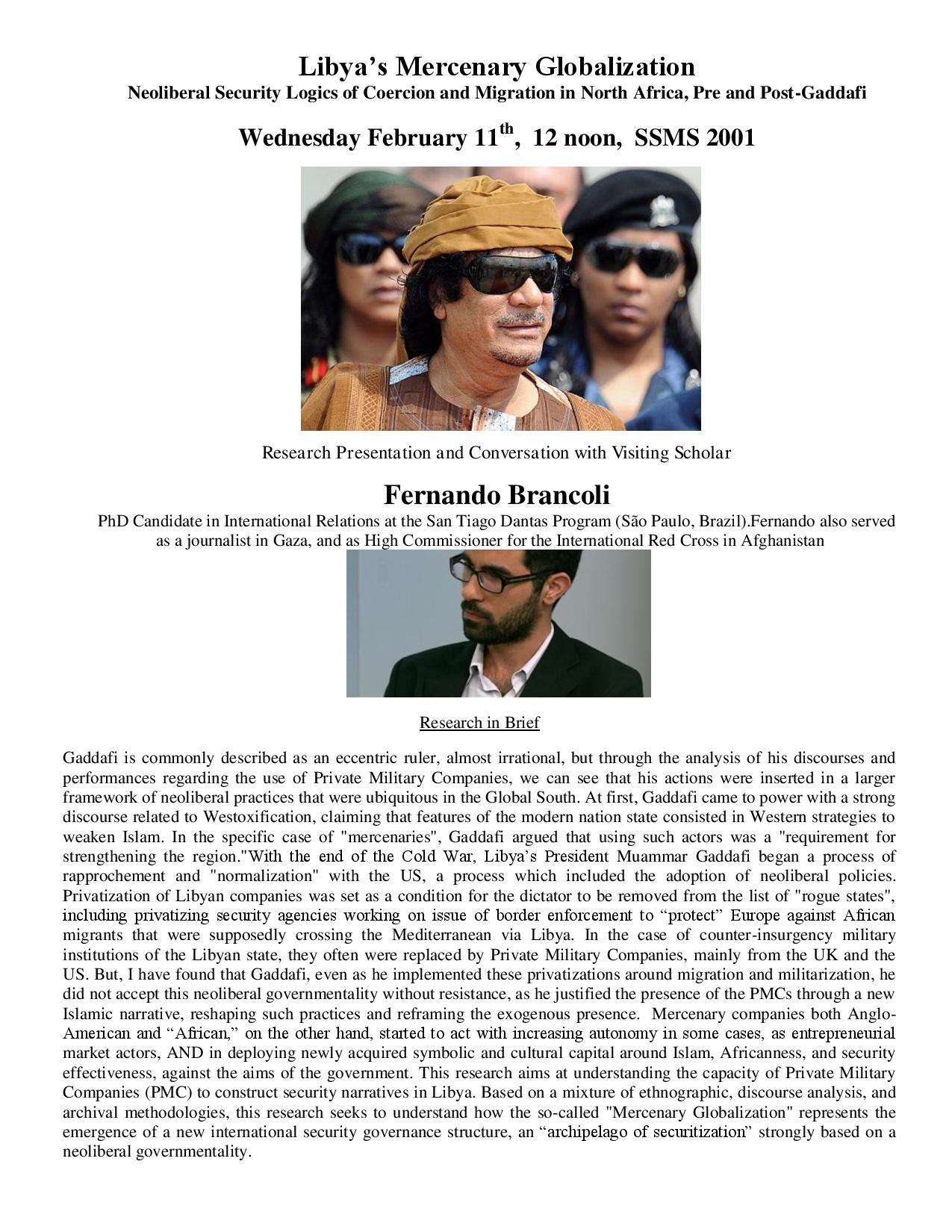
Event End: February 11, 2015 01:00 PM
Event Location: SSMS 2001
Event Details:
Speaker :
PhD Candidate in International Relations at the San Tiago Dantas Program (São Paulo, Brazil).Fernando.
Gaddafi is commonly described as an eccentric ruler, almost irrational, but through the analysis of his discourses and performances regarding the use of Private Military Companies, we can see that his actions were inserted in a larger framework of neoliberal practices that were ubiquitous in the Global South. At first, Gaddafi came to power with a strong discourse related to Westoxification, claiming that features of the modern nation state consisted in Western strategies to weaken Islam. In the specific case of "mercenaries", Gaddafi argued that using such actors was a "requirement for strengthening the region."With the end of the Cold War, Libya’s President Muammar Gaddafi began a process of rapprochement and "normalization" with the US, a process which included the adoption of neoliberal policies. Privatization of Libyan companies was set as a condition for the dictator to be removed from the list of "rogue states", including privatizing security agencies working on issue of border enforcement to “protect” Europe against African migrants that were supposedly crossing the Mediterranean via Libya. In the case of counter-insurgency military institutions of the Libyan state, they often were replaced by Private Military Companies, mainly from the UK and the US. But, I have found that Gaddafi, even as he implemented these privatizations around migration and militarization, he did not accept this neoliberal governmentality without resistance, as he justified the presence of the PMCs through a new Islamic narrative, reshaping such practices and reframing the exogenous presence. Mercenary companies both Anglo-American and “African,” on the other hand, started to act with increasing autonomy in some cases, as entrepreneurial market actors, AND in deploying newly acquired symbolic and cultural capital around Islam, Africanness, and security effectiveness, against the aims of the government. This research aims at understanding the capacity of Private Military Companies (PMC) to construct security narratives in Libya. Based on a mixture of ethnographic, discourse analysis, and archival methodologies, this research seeks to understand how the so-called "Mercenary Globalization" represents the emergence of a new international security governance structure, an “archipelago of securitization” strongly based on a neoliberal governmentality.